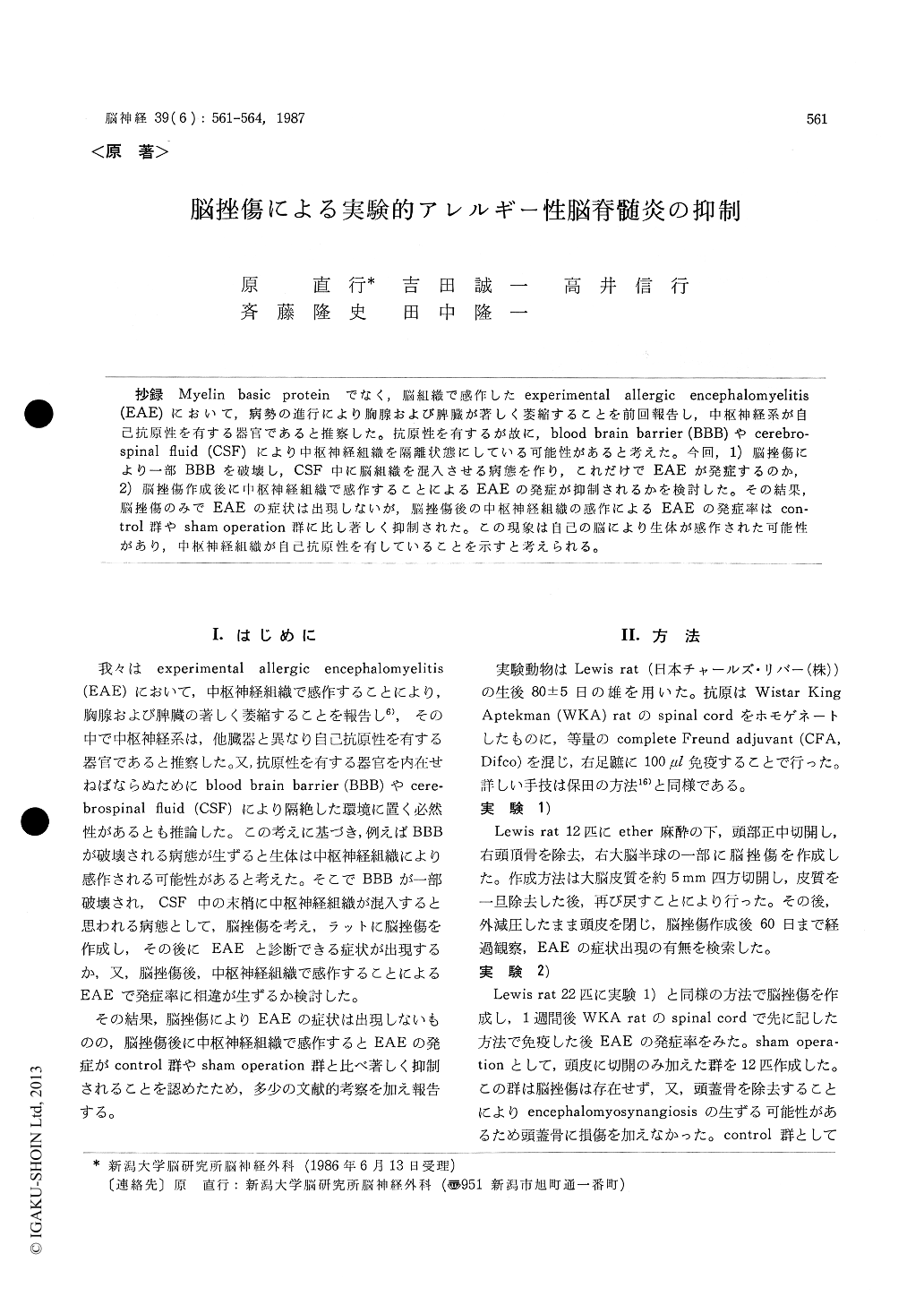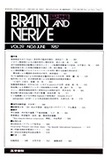Japanese
English
- 有料閲覧
- Abstract 文献概要
- 1ページ目 Look Inside
抄録 Myelin basic proteinでなく,脳組織で感作したexperimental allergic encephalomyelitis(EAE)において,病勢の進行により胸腺および脾臓が著しく萎縮することを前回報告し,中枢神経系が自己抗原性を有する器官であると推察した。抗原性を有するが故に,blood brain barrier (BBB)やcerebro-spinal Huid (CSF)により中枢神経組織を隔離状態にしている可能性があると考えた。今回,1)脳挫傷により一部BBBを破壊し,CSF中に脳組織を混入させる病態を作り,これだけでEAEが発症するのか,2)脳挫傷作成後に中枢神経組織で感作することによるEAEの発症が抑制されるかを検討した。その結果,脳挫傷のみでEAEの症状は出現しないが,脳挫傷後の中枢神経組織の感作によるEAEの発症率はcon—trol群やsham operation群に比し著しく抑制された。この現象は自己の脳により生体が感作された可能性があり,中枢神経組織が自己抗原性を有していることを示すと考えられる。
We previously reported that the thymolysis was observed in acute experimental allergic encepha-lomyelitis (EAE) rats immunized with brain tissue homogenates in complete Freund adjuvant. This observation has led us to suppose that the central nervous system (CNS) has high antigenicity for self. To keep from the high antigenicity of CNS, the blood brain barrier (BBB) and cerebrospinal fluid (CSF) which maintain CNS in isolated state are essential for self. If the BBB is destroyed and brain tissue is disseminated in CSF, is oneself sensitized by CNS ? In this experiment, we pro-duced cerebral contusion in rats and the BBB was partially destroyed and brain tissue was disse-minated in CSF.
No clinical signs of EAE were observed by cerebral contusion alone. When rat with cerebral contusion was exposed to encephalitogen one week later, EAE was remarkably suppressed compared with those in controls or sham operated groups (p<0.001).
Almost 80% of the rats with cerebral contusion showed no response to EAE. These results seem to show that self is sensitized by autologous brain tissue and CNS has high antigenicity.

Copyright © 1987, Igaku-Shoin Ltd. All rights reserved.


